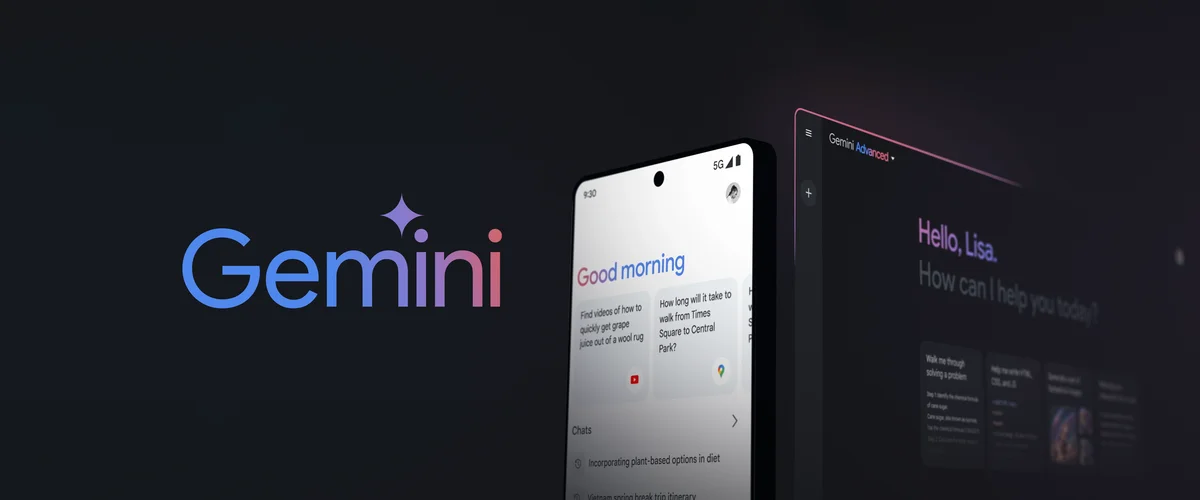Google releases Gemini Ultra as part of the $20 Google One AI Premium subscription. On-par with GPT-4 now. Also releases an Android app.
After meeting with a lukewarm response due to no remarkable gains over GPT-4 and a misleading intro video, Google has finally released the most powerful weight of its Gemini LLM – the Gemini Ultra. The chatbot Bard is now going by the new name Gemini.
In the December announcement post co-authored by CEO Sundar Pichai, Google didn’t fail to remind us how it’s an AI-first company working on LLMs for nearly eight years. Gemini’s performance was touted as state-of-the-art, the next step. Gemini 1.0 was rolled out to users. But the response wasn’t that great. It was no game-changer. That being said, that was the Pro model. Ultra is the most powerful which was teased for an early 2024 release.
Now, it’s finally here. Yesterday, VP and GM of Gemini Sissie Hsiao announced that Bard is now becoming Gemini and users can now try Gemini Ultra 1.0 in the official blog post.
Performance
It can do better reasoning, contain more context, have longer conversations, and do complex tasks like coding better. Google teased the clearly more capable AI model in a video:
Compared to GPT-4, there are some gains already. None of this is checked thoroughly and the differences could become less significant over the next few patches of both models.
- Firstly, Gemini Ultra is insanely fast. You’re paying Google so you should get access to faster data speeds, no-brainer. Bard and even Bard-on-Gemini-Pro tended to be painfully slow at times when one is used to GPT-4 speeds.
- In terms of technical prowess and logical reasoning, Gemini Ultra does seem to do a lot better, even in complex tasks, compared to GPT-4.
- Coding is one of the key focuses of today’s AI chatbots. Though I’m not a programmer who can effectively test this, OpenAI’s GPT-4-Turbo does have a longer context length of 128K tokens. Gemini Ultra is capped at 32K. This should introduce a performance gap if you’re asking it to read, write, or run very large amounts of code. But as long as your use case is under 32K, Gemini Ultra does a comparable or even better job. Gemini can’t run code natively, but can send code to Colab where you can test it.
Similarities between GPT-4 and Gemini Ultra include multimodality (image generation, for example), in which case both perform pretty comparably.
Unlike GPT-4’s store where you can get agents developed by others, the Gemini Advanced extensions are currently limited in scope and not open to third-party developers. This might soon change in the future.
Overall, Gemini Ultra is comparable to GPT-4 and much better than Gemini Pro. It also outperforms GPT-4 in some cases or comes with some nice perks, such as better reasoning for complex prompts sometimes. But GPT-4 was released in March of 2023. With GPT-5, OpenAI and Microsoft might sweep us off our feet once more, though Sam Altman has clarified recently that work on GPT-5 is paused.
Pricing
Access to the Ultra weight of Gemini is a paid feature, much like ChatGPT Plus, priced at the same $20. The package is called Gemini Advanced. Notably, the subscription is not standalone. If you subscribe to Google One’s fourth “AI Premium” tier (which, among other things, gives you 2 TB of Google Drive storage), you automatically get access to Gemini Ultra 1.0. This gives it a slight edge over ChatGPT Plus, which is just the chatbot and nothing else.
Note that without a Google One Premium subscription, your Bard/Gemini chatbot will still use Gemini Pro, the earlier model. The normal “Premium” tier also featuring a 2 TB storage is $10 per month but does not give you Gemini Advanced, which is the container name for the Gemini Ultra model (because why not complicate matters).
Android App
Apart from this, Gemini also has an Android app now. The best part? You can use it through Google Assistant by saying “Hey Google” and unlock the power of a generative AI, which has long been a dream for smartphone users. There is no iOS app yet (they are planning on one). Even if there was, Apple is most likely not going to allow AI chatbots from other companies the default LLM behind Siri anyway.
Google Assistant is now more buffed up.

